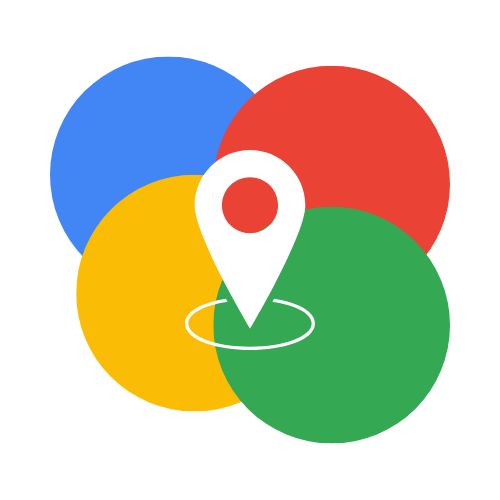Google Reviews
The Importance of Managing Google Reviews and the Future of Google Maps
In today’s digital universe, where every search translates into a business opportunity, Google reviews have become one of the most influential tools for a company’s online reputation and visibility. What was once simply a space to leave an opinion is now an essential component of local SEO, capable of determining which brand appears at the top of the results and which one gets lost in the map’s anonymity.
Every star counts. Every comment adds value. And every response a company provides to its customers says more about its professionalism than any advertising campaign. Aware of this, Google has turned its reviews into a source of strategic data that feeds the Google Maps algorithm and the search engine itself, rewarding genuine interaction and penalizing attempts at manipulation or inactivity.
But while many businesses limit themselves to collecting reviews, the landscape is changing. Google Maps is no longer just a map: it’s an intelligent assistant, powered by Gemini AI, capable of interpreting complex questions and providing personalized answers based on reviews, hours, photos, and context. This ushers in a new era for local visibility, where digital reputation is measured not only by stars but by credibility, conversation, and consistency.
In this article, we will explore why Google reviews are a key component of modern SEO, how to manage them professionally, and the role Google Maps will play in the near future of local searches.
An essential guide for those who understand that trust is today’s most effective form of marketing.

The Real Value of Google Reviews
Google reviews are much more than a testimonial section or a showcase of stars; they are one of the most powerful signals for local SEO and a direct source of consumer trust. Behind each rating are data points that Google analyzes to assess a business’s authority, relevance, and reputation.
More Than Stars: A Matter of Trust and Visibility
Users are not only looking for a nearby business but also a trustworthy one. And trust is built through the opinions of others. In fact, according to the most recent BrightLocal reports, over 85% of consumers trust online reviews as much as a personal recommendation.
Google, aware of this behavior, incorporates reviews into its “local prominence” algorithm, one of the three ranking pillars along with relevance and distance. A business profile with recent, consistent, and well-responded reviews is more likely to appear in the renowned Local Pack or at the top positions on Google Maps.
How They Influence Local SEO and the “Prominence” Algorithm
When a user searches for “water softener in Barcelona” or “best Italian restaurant near me,” Google considers three factors:
- Relevance, meaning whether the business matches what the user is looking for.
- Distance, the proximity of the business to the search location.
- Prominence, the business’s reputation based on signals such as mentions, links, and—most importantly—reviews.
Each new review provides semantic context: the words customers use to describe a service help the search engine better understand the nature of the business. That’s why reviews that include terms like “fast,” “professional,” “osmosis installation,” or “Barcelona” can indirectly boost SEO by adding relevant natural vocabulary that Google recognizes as quality content.
User Psychology: Why Reviews Are More Persuasive Than Advertising
Unlike an advertisement or a brand slogan, a review is perceived as a neutral voice, a first-hand experience. Consumers take the time to read comments before making decisions, and Google prioritizes showing results that inspire trust.
In this sense, reviews serve a dual purpose: they influence both the algorithm and the user’s mind. A high average rating improves click-through rates, but a recent, empathetic, and well-managed comment can be the factor that turns a search into an actual customer interaction.
Professional Review Management: Reputation, Data, and Strategy
Today, managing Google reviews is not just about responding to comments—it’s about overseeing a company’s digital reputation in real time. Every visible interaction on Google Maps or the Business Profile conveys a direct impression to users. That’s why companies that maintain active and transparent management achieve not only better ratings but also more stable positioning and higher conversion rates.

What Active Management Means and Why Google Rewards It
Google values continuous engagement. Profiles that show a steady flow of new reviews, recent responses, and legitimate account activity tend to maintain their visibility in the Local Pack.
Responding is not optional: when a business replies to a review, it demonstrates that it is real, accessible, and cares about its customers. Additionally, each response generates extra semantic signals that Google’s algorithms interpret as relevant and up-to-date content.
A good strategy includes:
- Requesting reviews ethically after a purchase or service.
- Thanking positive feedback in a personalized manner.
- Addressing criticism without arguing: offering solutions or additional information.
- Identifying patterns in reviews (keywords, product or location mentions) to optimize local SEO.
Official Policies: What You Can and Cannot Do
Google expressly prohibits fake, incentivized, or conflict-of-interest reviews. Discounts, gifts, or compensation cannot be offered in exchange for ratings, nor can businesses post their own or employee reviews.
Additionally, reviews must come from real experiences and be written by actual people, not generated automatically or copied from other platforms.
Non-compliance can lead to content removal or profile suspension, directly affecting traffic and reputation. Therefore, professional management is not just about requesting reviews but creating verified processes that ensure authenticity and regulatory compliance.

Responding to reviews is an opportunity to communicate values.
A warm thank-you to a satisfied customer reinforces closeness, while an empathetic response to criticism demonstrates commitment and transparency. Both build trust, for the author and for future readers.
The ideal tone is human, brief, and consistent with the brand’s identity. It’s best to avoid generic responses, as Google rewards naturalness and users perceive authenticity.
Every review, positive or negative, can be transformed into valuable content that strengthens the brand: a showcase of how the company listens, improves, and evolves.
How to Respond Correctly and Turn It into Brand Communication
Google Maps Reinvented: From Map to Intelligent Assistant
For years, Google Maps has been a navigation tool: a practical way to get from point A to point B. But in recent months, the map’s purpose has changed. With the arrival of Gemini, Google’s artificial intelligence model, Maps is beginning to function as a conversational and predictive assistant, capable of understanding user needs even before they enter an exact search.
Gemini and the Era of Conversational Searches in Maps
Google has integrated its generative AI directly into Maps. This allows users to ask natural questions, such as:
“Where is a quiet restaurant to have dinner near the sea with good reviews?”
Or even:
“Show me plumbers available right now in my area with ratings above 4 stars.”
The difference is that Google now not only shows locations but also interprets intent, context, and preferences. The system cross-references data from reviews, photos, hours, traffic, and user profiles to provide personalized and contextual answers.
In other words, Google Maps is no longer just a map—it has become an intelligent discovery engine.
“Ask About Place” and the Fusion of AI and Local Experience
One of the most powerful new features is Ask About Place, a function that allows users to ask questions directly about a location from its Google Maps profile. Whereas reviews used to be a passive read, they are now integrated as an active knowledge base: the AI analyzes thousands of opinions to answer questions in natural language.
For example:
“Does this gym have individual showers?”
“Can I reserve a table on Sundays at this restaurant?”
Users receive automated answers based on existing reviews and profile data, without needing to visit the website.
This redefines digital visibility: businesses with complete, up-to-date, and specific reviews will be cited more frequently in AI-generated responses.
What Changes for Businesses and How to Prepare
The integration of Gemini transforms local SEO into a more competitive and demanding field.
Business profiles no longer compete solely on location or number of reviews; now, the quality of language, data consistency, and naturalness of descriptions come into play.
To prepare, businesses should:
- Review their Google Business Profile to ensure accurate information, appropriate categories, and high-quality photos.
- Encourage detailed reviews that address common questions (service, accessibility, pricing, hours).
- Adapt your website content and posts to a more conversational language, anticipating the questions AI may interpret.
- Integrate semantic SEO strategies and review optimization, understanding that every word counts for the algorithm.
In this new scenario, Google Maps is no longer just a reference tool; it becomes a conversational environment where reputation is built in real time and each review can turn into a potential answer.
Advanced Strategies for Local Businesses and Brands
Managing Google reviews doesn’t end with responding to customers—it starts with strategy.
The companies that make the most of their digital profile aren’t those with the most stars, but those that integrate reviews into their marketing, SEO, and communication ecosystem.
Below, we explore the strategies that set local leaders apart from invisible businesses.
How to Combine Local SEO, Reviews, and User-Generated Content (UGC)
Google’s algorithm interprets reviews as living content, written by real customers and constantly updated. Each opinion generates new keywords, reinforces semantic associations, and provides contextual data that helps the search engine understand the business’s authority.
That’s why including snippets of reviews on your website or social media campaigns is a smart practice: it strengthens your messaging with real testimonials and also increases the density of natural keywords related to your services.
Another key tactic is linking reviews with local content. Posts like “Satisfied Customers with Our Osmosis Service in Rubí” or “Opinions About Our Home Water Softeners” reinforce location and specialization signals, helping to consolidate local authority.
Monitoring, Auditing, and Digital Reputation Metrics
A professional strategy requires measuring results. Google provides metrics through the Business Profile: number of reviews, average rating, most common queries, and frequency of appearance in local searches.
However, the true value lies in qualitative analysis:
- What topics do customers repeat?
- Which adjectives appear most frequently?
- Which natural keywords link your brand to the service or location?
This data helps identify areas for improvement in user experience and communication, turning review management into a business intelligence tool.
Periodic audits help detect suspicious or duplicate reviews and assess the consistency between the profile, website, and social media. Message consistency is one of the signals that Google rewards in local rankings.
Practical Cases: Businesses That Grew Thanks to Real Reviews
Local businesses that have invested in active reputation strategies often report significant increases in traffic and conversions.
For example, businesses with more than 50 authentic and recent reviews can experience a CTR increase of up to 30% compared to those with fewer than 10, according to BrightLocal reports.
This is because users perceive a brand as active, visible, and connected to its community.
Success isn’t about accumulating stars, but about maintaining a constant conversation with the audience: listening, responding, improving, and showing appreciation. This consistency is what differentiates an optimized profile from one that simply exists.
The Future of Local SEO and Google’s Geospatial AI
The concept of “local SEO” is undergoing a silent revolution.
For years, the goal was simply to appear on the map; now, the challenge is to be understood by an artificial intelligence that decides which businesses are worth showing.
With the integration of Gemini AI and the so-called geospatial AI, Google is reshaping the future of local searches: an environment where context, intent, and reputation matter more than keywords.
Until recently, Google reviews were simply an indicator of customer satisfaction. Today, they serve as training data for the language models that power the search engine and Maps.
Gemini is capable of interpreting the tone of a review, identifying frequent mentions, and classifying attributes (fast service, pleasant atmosphere, competitive prices) to answer users’ questions directly.
For example:
“Which is the best café to work quietly in the city center?”
“Where can I find a workshop that’s open on Sundays?”
The answers Google provides will not come from links, but from a summary generated from reviews, hours, and location.
This marks the beginning of conversational SEO, where the most visible business will be the one that communicates its value proposition clearly, humanely, and consistently within Google’s ecosystem.
Integration Between Reviews, AI, and Personalized Results

How Voice and Conversation Will Replace Clicks
The rise of voice assistants and spoken searches reinforces this trend.
Google Maps, integrated with Gemini and Android Auto, already allows voice interaction to discover businesses or request contextual information (“Take me to the restaurant with the best vegetarian menu reviews nearby”).
Businesses will need to focus on oral and contextual responses, not just written profiles.
Semantics, language consistency, and review quality will be key to appearing in these conversational searches.
It’s no longer just about being on the map, but about being recognized by AI as the best option for a specific need.
The Opportunity for Brands That Know How to Adapt
While many businesses still see reviews as merely an indicator of satisfaction, others treat them as content assets.
Each review is a piece of natural communication that feeds Google’s intelligence and enhances organic visibility.
Companies that achieve a balance between excellent customer experience, reputation management, and semantic optimization will be prepared to lead in this new landscape.
At Xarxalia, we believe the key to the future isn’t competing for keywords, but generating authentic conversations that algorithms recognize as valuable.
Local SEO is becoming emotional, predictive, and contextual.
And the brands that learn to connect with this new intelligence will be the ones that build solid and lasting visibility.
The New Digital Reputation Is Built with a Human Voice
Google reviews have become the mirror of modern reputation.
Beyond stars or visibility metrics, what truly matters is what they represent: the opinions of real people about real experiences.
And that human value, that organic credibility, is what is defining the next generation of local SEO.
The new AI-powered Google Maps is transforming the way we discover, compare, and choose businesses.
It no longer looks just for locations; it seeks context, consistency, and trust.
Gemini technology turns reviews into useful data for answering complex questions, and every business profile into a living knowledge source.
That’s why managing reviews is not just another marketing task—it’s building the foundation on which a company will be perceived in the digital future.
At Xarxalia, we see it as a natural evolution of SEO.
Visibility no longer depends solely on algorithms, but on the quality of the relationships brands build with their customers.
Responding, listening, thanking, and improving has become the new language of positioning.
And in this language, authenticity is the key word.
Because in this new era, where searches are conversations and maps are assistants, the difference lies not in who appears first, but in who generates trust when artificial intelligence listens.
At Xarxalia, we work to ensure that every client, brand, or project has a digital presence that speaks for itself: clear, approachable, and ready for the future of interaction.
Google reviews are the voice of the user. Our mission is to help your business have something valuable to say as well.